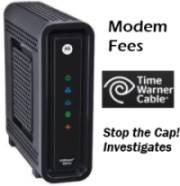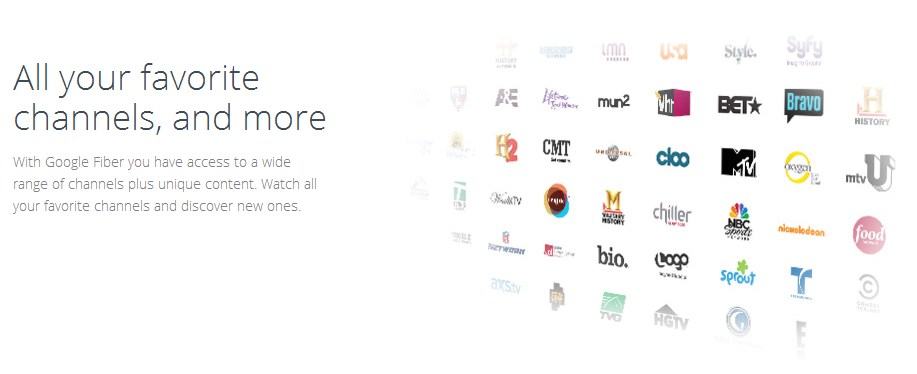Instead of waiting for the outcome of a class action case against Time Warner Cable’s new $3.95 monthly modem fee, readers might do better taking their case direct to the company. Longtime Stop the Cap! reader “PreventCAPS” rattled the cages of Time Warner’s social media customer service representatives, which resulted in credits worth six months of modem rental fees.
Our reader tells us he brought pointed questions about the modem fee, complaints about the inconsistent reasons for imposing them, and irritation about the lack of notification.
Some Q&A:
Q. Why is Time Warner Cable now charging a modem fee? Earlier reports that the fee would cover the cost of equipment do not make sense because the company is not automatically supplying customers with new cable modems and already assesses $24-150 penalty fees to “cover costs” of damaged or unreturned cable modems.
A. Time Warner Cable now says the fee is to cover the costs of increasing broadband speeds. A representative explained that the company wants to make sure everyone can be assured of getting the speeds advertised, and there are still customers with DOCSIS 1x equipment that can only support broadband speeds up to 9Mbps, which already conflicts with the company’s advertised 10Mbps Standard Service speed (soon to be 15Mbps).
Our Take: DOCSIS 1x equipment was recalled from western New York customers years ago. It was first introduced locally in 1998 and is long past its expiry date. It is a safe bet only a very tiny percentage of Time Warner customers still have first generation equipment. The overwhelming majority of current broadband customers have DOCSIS 2 modems, many installed years earlier. Those customers will keep that equipment for years to come unless they choose to upgrade to 30/5Mbps speeds or higher because a DOCSIS 3 modem is required for faster speeds. Our reader pointedly asked if the new modem fee guarantees every customer will receive the newest equipment and increased service. The answer in response was “no.”
These phony explanations and justifications tapdance around the reality this modem fee is being introduced as a revenue enhancer — nothing more, nothing less.
Q. Why is the list of supported DOCSIS 3.0 modems so thin and limited?
A. The representative speculated the reason Time Warner Cable so heavily favored Motorola equipment came from contractual support agreements and guarantee obligations with that company. But the representative claimed Time Warner Cable “will activate and support any modem model they currently lease to customers.”
Our Take: This claim represents a new development, but one unlikely to prove consistent across the country. Time Warner Cable’s national call centers have employees currently trained to activate and support only those modems on the approved list. However, local technical support and “Tier 3” agents inside of local offices seem to have a more flexible attitude about accepting other equipment. This is a classic case of “your results may vary.”
Q. Why are there modem fees for Internet service but no modem fee if I use the exact same equipment for my Time Warner Cable phone service.
A. The representative claimed it has to do with Federal Communications Commission rules governing phone equipment.
Our Take: We are not certain what rules would apply in this case, but it is possible the company’s lawyers found some “exposure” if Time Warner began charging the fee for phone service equipment. Again, we suspect the fee applies to broadband primarily because it is the service customers are least-likely to cancel over a price hike. Phone service is more tenuous. Increase the price and disconnect requests are likely to rise.
Q. Why are these fees being instituted to “cover costs” when records show capital expenses for Internet service (and cable modem equipment) have dropped for the past three years in a row?
A. The representative claimed that capital costs don’t cover cable modems.
Our Take: That answer is completely inaccurate. Nice try. Stop the Cap! earlier reported that capital expenditures for customer premise equipment dropped for the last three years in a row. For the benefit of readers (and Time Warner Cable), here is the company’s own definition of that equipment¹:
“Such equipment includes digital (including high-definition) set-top boxes, remote controls, high-speed data modems (including wireless), telephone modems and the costs of installing such new equipment.”
¹- Time Warner Cable 2011 Annual Report, “TWC’s capital expenditures,” p.60


 Subscribe
Subscribe








